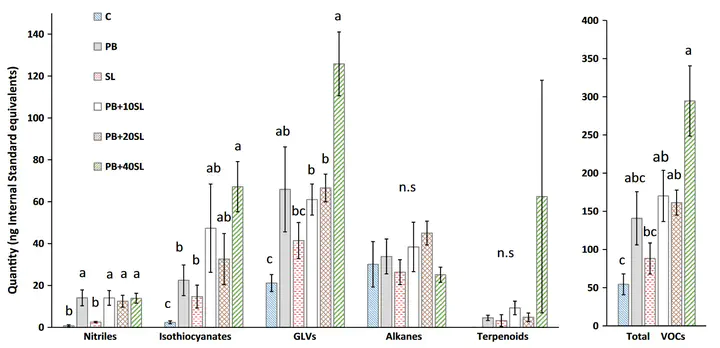Invasive insect herbivores as disrupters of chemically-mediated tritrophic interactions: effects of herbivore density and parasitoid learning
 Image credit: [Antoine Guiguet]
Image credit: [Antoine Guiguet]Résumé
Invasive insect herbivores have the potential to interfere with native multitrophic interactions by affecting the chemical cues emitted by plants and disrupting the attraction of natural enemies mediated by herbivore-induced plant volatiles (HIPVs). In a previous study, we found that the presence of the exotic herbivore Spodoptera littoralis on Brassica rapa plants infested by the native herbivore Pieris brassicae makes these dually-infested plants unattractive to the main parasitoid of P. brassicae, the braconid wasp Cotesia glomerata. Here we show that this interference by S. littoralis is strongly dependent on the relative densities of the two herbivores. Parasitoids were only deterred by dually-infested plants when there were more S. littoralis larvae than P. brassicae larvae on a plant. Furthermore, the blend of HIPVs emitted by dually-infested plants differed the most from HIPVs emitted by Pieris-infested plants when S. littoralis density exceeded P. brassicae density. We further found that associative learning by the parasitoid affected its preferences, attraction to dually-infested plants increased after parasitoids were presented a P. brassicae caterpillar (rewarding experience) in presence of the odor of a dually-infested plant, but not when presented a S. littoralis caterpillar (non-rewarding experience). A non-rewarding experience prior to the bioassays resulted in a general decrease in parasitoid motivation to respond to plant odors. We conclude that herbivore density and associative learning may play an important role in the foraging behavior of natural enemies in communities, and such effects should not be overlooked when investigating the ecological impact of exotic species on native food webs.